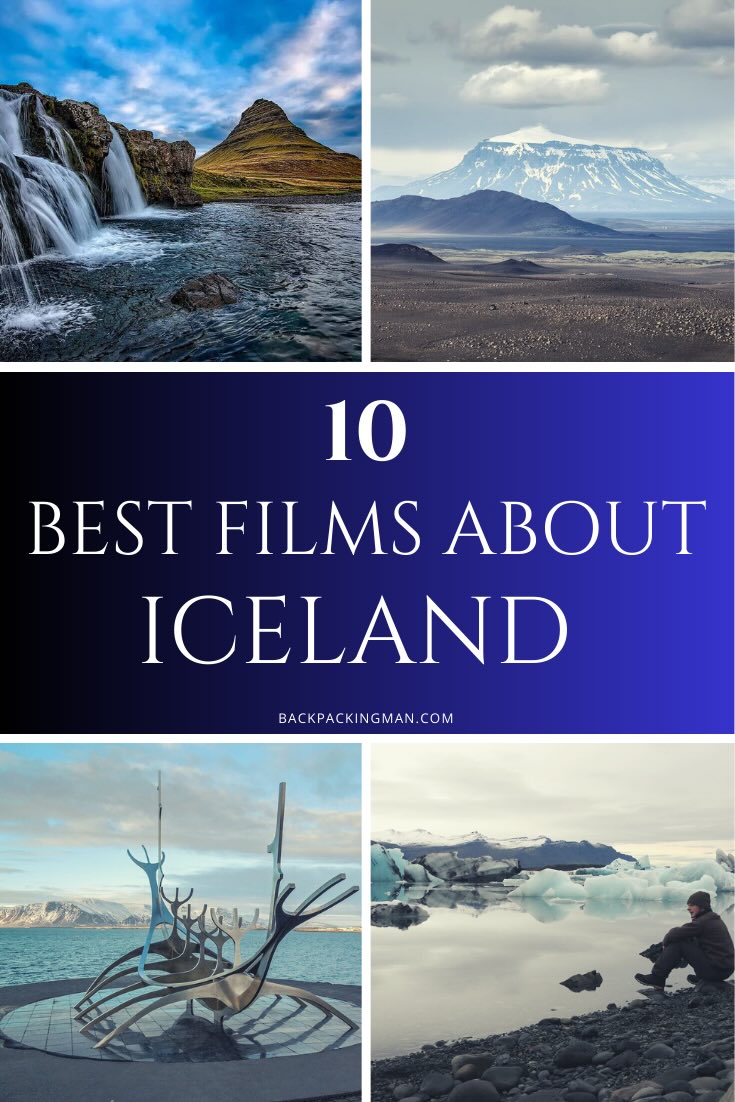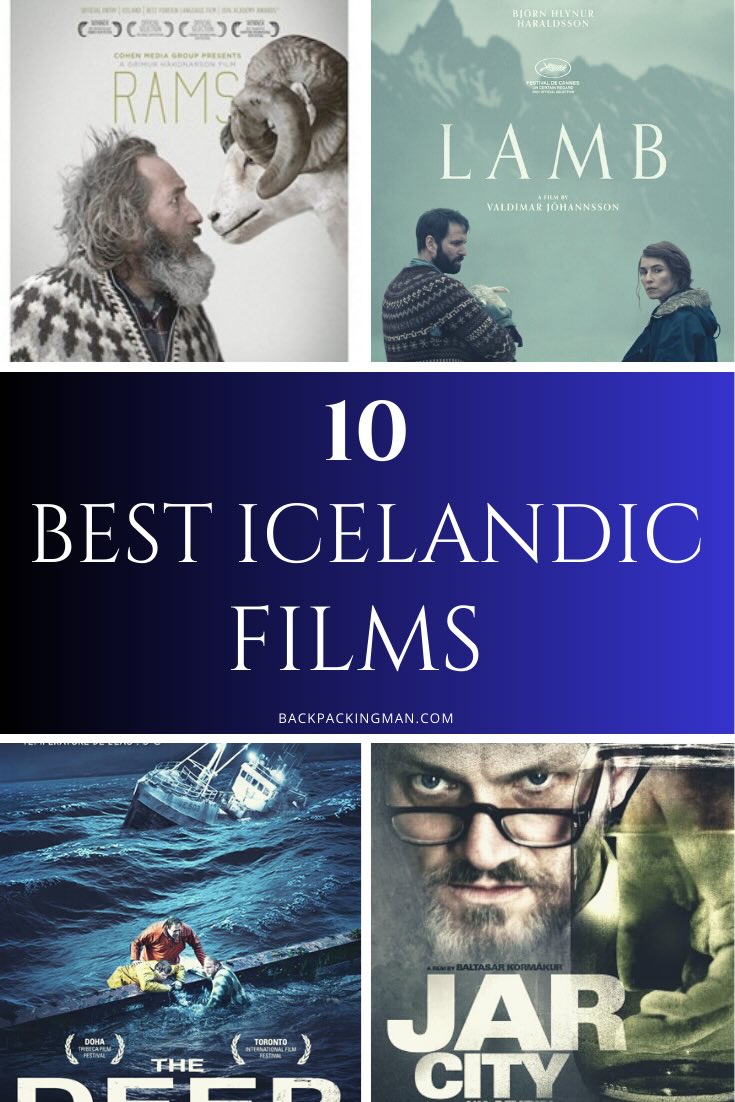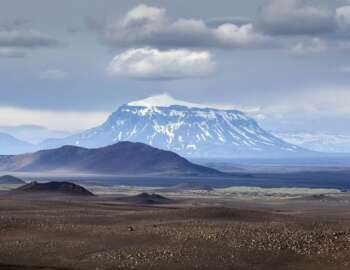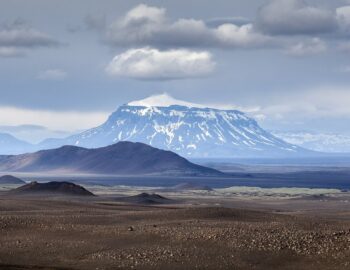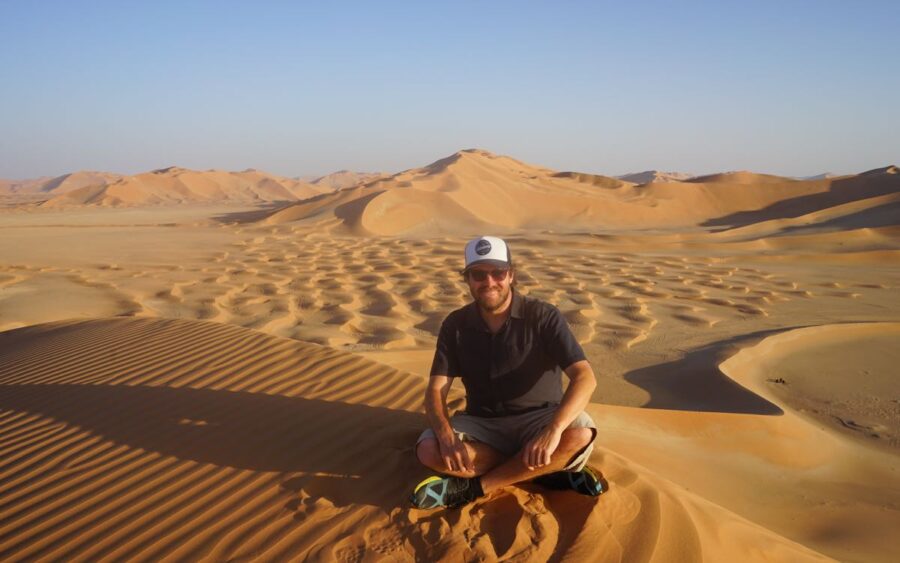These Icelandic films from “The Land of Fire and Ice” often weave a tapestry of human emotions against the stunning backdrop of the country’s raw and otherworldly beauty.
From gritty dramas exploring the complexities of modern Icelandic society to ethereal tales that draw inspiration from the island’s mystical past, Icelandic cinema captivates you with its authenticity and originality.
Icelandic Films
Icelandic cinema, though emerging from a small and geographically isolated nation, has made a significant impact on the global film landscape with its unique storytelling and breathtaking landscapes.
On a personal note, I have visited Iceland many times and it’s one of my favourite countries to travel to. It truly is a stunning place.
These Icelandic films are in no particular order and cover a variety of genres. Of course there are many films to watch about Iceland but these are some of the best.
Jar City (2006)
Jar City is an Icelandic crime film directed by Baltasar Kormákur. The film is based on the novel “Jar City” by Arnaldur Indriðason.
The story revolves around a detective named Erlendur, played by Ingvar Eggert Sigurðsson, who is investigating the murder of an elderly man named Holberg. As Erlendur delves into the case, he discovers a complex web of secrets and connections that lead back to a genetic research facility known as “Jar City.”
The film combines elements of a traditional crime procedural with a focus on genetics and hereditary diseases. It explores themes of family, guilt, and the impact of the past on the present. The title “Jar City” refers to a collection of glass jars containing human organs for research purposes, adding a unique and somewhat macabre element to the story.
Jar City received positive reviews for its atmospheric portrayal of Reykjavik, the Icelandic capital, and its engaging storytelling. It’s one of the best Icelandic films to watch based on crime.
Rams (2015)
Rams is an Icelandic drama film directed by Grímur Hákonarson. The film tells the story of two estranged brothers, Gummi and Kiddi, who live on neighbouring farms in a remote Icelandic valley. The brothers, both sheep farmers, have not spoken to each other in 40 years despite sharing a significant part of their lives.
The narrative takes a dramatic turn when a deadly disease threatens the sheep in the valley, and the government orders a cull of all livestock to contain the outbreak. Gummi and Kiddi, faced with the possibility of losing their beloved sheep and the way of life they have known, must confront their differences and find a way to save their flocks.
Rams received critical acclaim for its portrayal of rural life in Iceland, the strong performances of its lead actors, and its exploration of themes such as family, isolation, and resilience. The film’s title, “Rams,” refers not only to the stubbornness of the characters but also to the prized sheep that are central to their lives.
The film won the Un Certain Regard prize at the 2015 Cannes Film Festival and was Iceland’s official submission for the Best Foreign Language Film category at the 88th Academy Awards and is one of the best Icelandic films to watch.
Woman at War (2018)
Woman at War is a 2018 Icelandic-Ukrainian-French thriller film directed by Benedikt Erlingsson. The film stars Halldóra Geirharðsdóttir as the protagonist, Halla, a middle-aged woman who leads a double life as an environmental activist.
The story revolves around Halla, an independent and determined woman who declares war on the local aluminium industry in Iceland. Using the codename “The Mountain Woman,” she carries out acts of industrial sabotage to protect the environment.
Simultaneously, she is in the process of adopting a Ukrainian orphan. The film explores themes of environmentalism, personal sacrifice, and the complexities of balancing activism with personal relationships.
One notable aspect of “Woman at War” is its use of music. The film features a unique musical element where a band of musicians appears on-screen, providing a live soundtrack to the unfolding events. This adds a whimsical and theatrical dimension to the storytelling.
The film received critical acclaim for its originality, the strong performance of Halldóra Geirharðsdóttir, and its blend of environmental activism with a touch of humour and surrealism. It was Iceland’s official submission for the Best Foreign Language Film category at the 91st Academy Awards.
The Deep (2012)
The Deep is an Icelandic drama film directed by Baltasar Kormákur. The film is based on the true story of the 1984 sinking of the fishing trawler MS Sundown off the south coast of Iceland.
The protagonist, Gulli (played by Ólafur Darri Ólafsson), is one of the few survivors of the shipwreck. The film explores his struggle for survival in the freezing waters of the North Atlantic as he swims for hours to reach the shore. Gulli’s resilience and determination become central themes as he faces extreme conditions and fights for his life.
The Deep received critical acclaim for its gripping portrayal of a real-life survival story and its atmospheric cinematography. It was Iceland’s official submission for the Best Foreign Language Film category at the 85th Academy Awards.
The film is notable for its realistic and intense depiction of survival at sea, as well as for addressing themes of isolation and the human spirit’s capacity for endurance in the face of extreme adversity. This is one of my favourite Icelandic films.
101 Reykjavik (2000)
101 Reykjavik is another Icelandic film directed by Baltasar Kormákur, based on the novel of the same name by Hallgrímur Helgason. The film is a dark comedy that offers a unique and quirky perspective on life in Reykjavik, the capital of Iceland.
The story follows Hlynur, a lazy and apathetic young man in his early thirties who lives with his mother. Hlynur’s life takes an unexpected turn when his mother comes out as a lesbian and brings her Spanish girlfriend, Lola, into their home. Complications arise when Hlynur finds himself attracted to Lola, leading to a series of unconventional events.
The film explores themes of identity, relationships, and the search for meaning in a seemingly mundane life. It is known for its offbeat humour, unconventional characters, and its portrayal of Reykjavik’s bohemian and alternative culture.
101 Reykjavik is one of the most classic of these Icelandic films and has a cult status in the country. The title refers to the postal code for downtown Reykjavik, which is known for its vibrant and eclectic atmosphere.
Cold Fever (1995)
Cold Fever is a mix of drama and comedy with elements of road movie and cultural exploration. It tells the story of a Japanese man named Hirata, played by Masatoshi Nagase, who travels to Iceland to perform a traditional Japanese ritual to appease the spirit of his parents who died in a car accident on their way to visit relatives in Iceland.
The film explores the cultural clash and the comedic situations that arise as Hirata encounters the unique and sometimes surreal aspects of Icelandic society. Throughout his journey, he meets various interesting characters, experiences the country’s stunning landscapes, and learns about Icelandic customs.
Cold Fever is notable for its blend of humour, cultural exploration, and beautiful cinematography showcasing the Icelandic landscape. The film’s unique premise and execution have made it a cult favourite out of these Icelandic films
Lamb (2021)
Lamb is an Icelandic supernatural drama film directed by Valdimar Jóhannsson. The story revolves around a childless couple in rural Iceland who make a startling discovery one day in their sheep barn.
Without giving away too much, the film explores themes of parenthood, identity, and the boundaries between the human and animal worlds. Noomi Rapace and Hilmar Snær Guðnason star in the lead roles.
This is one of the more recent Icelandic films to watch and a somewhat disturbing one that’s partly based on Icelandic folklore.
Noi the Albino (2003)
Noi the Albino follows the life of Noi, a teenage boy who is living in a small and isolated village in Iceland. Noi is an intelligent but disenchanted and rebellious young man who feels out of place in the quiet and routine life of his hometown.
The narrative revolves around Noi’s attempts to break free from the constraints of his surroundings and find a sense of purpose and meaning in his life. He forms a connection with a young girl, Iris, and dreams of escaping the confines of the village for a more exciting and adventurous life.
The film explores themes of isolation, existentialism, and the search for identity. It has been praised for its atmospheric cinematography, the nuanced performance of Tómas Lemarquis, and its portrayal of the unique Icelandic landscape.
Noi the Albino” received positive reviews from critics and won several awards at international film festivals. It offers a coming-of-age story with a distinctive Icelandic flavour, capturing the beauty and desolation of its setting.
Of Horses and Men (2013)
Of Horses and Men is a dark comedy and one of the stranger Icelandic films to watch. It weaves together a series of interconnected stories involving the relationships between humans and horses in a rural Icelandic community.
The narrative unfolds through a series of vignettes, each centred around different characters and their interactions with horses. The film explores the deep connection between the people and the horses in this small, isolated community, portraying both the humorous and tragic aspects of their lives.
Of Horses and Men received positive reviews for its unique storytelling, stunning cinematography capturing the Icelandic landscapes, and its exploration of the symbiotic relationship between humans and horses. The film’s visual style and its blend of humour and drama contribute to its distinctiveness.
Children of Nature (1991)
Children of Nature is a drama with elements of comedy. The film received critical acclaim and was nominated for the Academy Award for Best Foreign Language Film in 1992.
The story revolves around an elderly man named Thorgeir, who is forcibly moved from his Reykjavik home to a nursing home. Thorgeir, not content with the sterile environment of the institution, escapes and embarks on a journey back to his birthplace, the remote and beautiful Icelandic countryside.
Along the way, he is joined by Stella, a fellow resident of the nursing home.
The film explores themes of ageing, the passage of time, and the connection between individuals and their natural surroundings. It combines moments of humour with poignant reflections on life and death.
Children of Nature is often praised for its cinematography, capturing the stunning landscapes of Iceland and although one of the more older Icelandic films to watch it’s still a good one.
Iceland
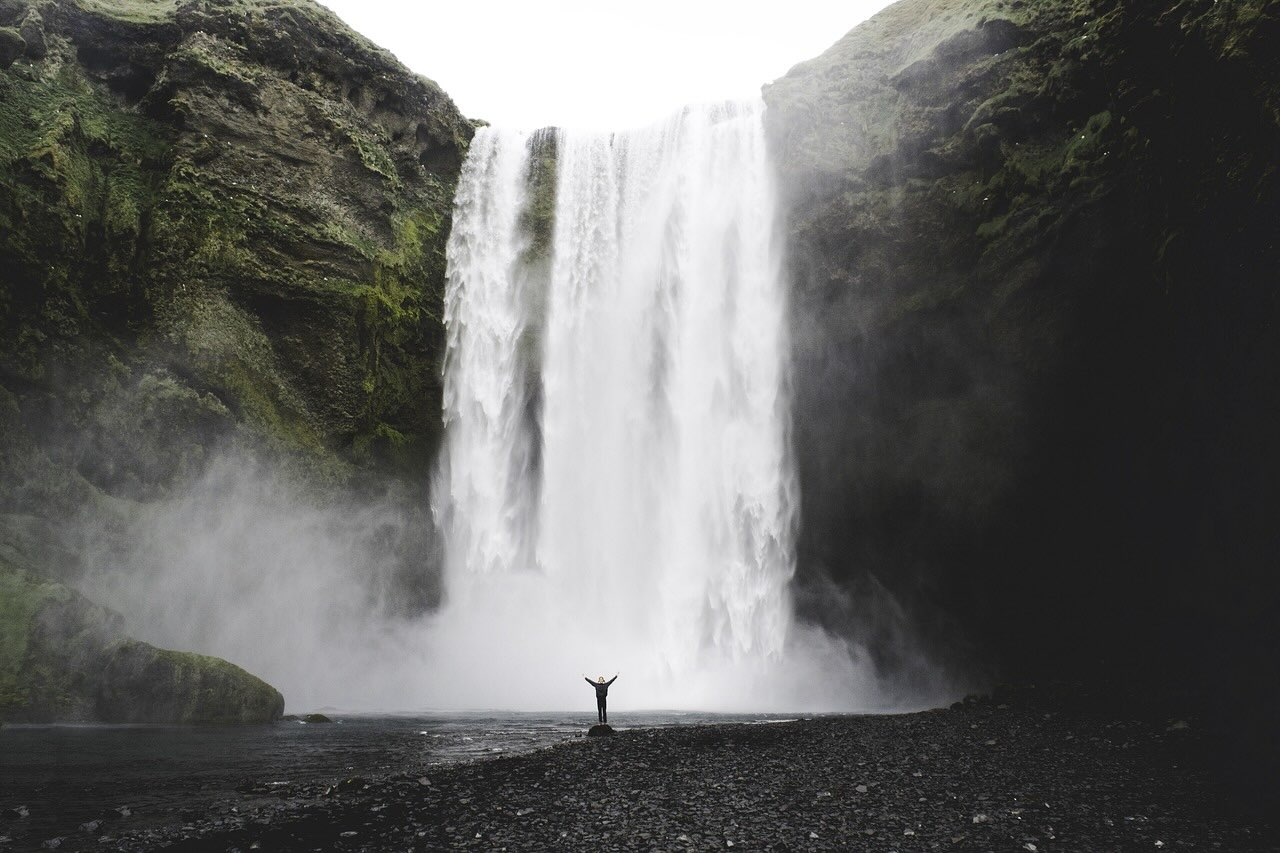
These Icelandic films offer a diverse glimpse into Icelandic culture, landscapes, and societal nuances, making them not only visually captivating but also culturally enriching cinematic experiences.
As the Icelandic film scene continues to evolve, it stands as a testament to the power of storytelling to transcend borders and offer a window into the soul of a nation shaped by its unique history and environment.
Iceland is awesome!
For more on Iceland take a look at the 10 best documentaries about Iceland.
And also the 10 best books about Iceland to read.
Share these Icelandic films:
